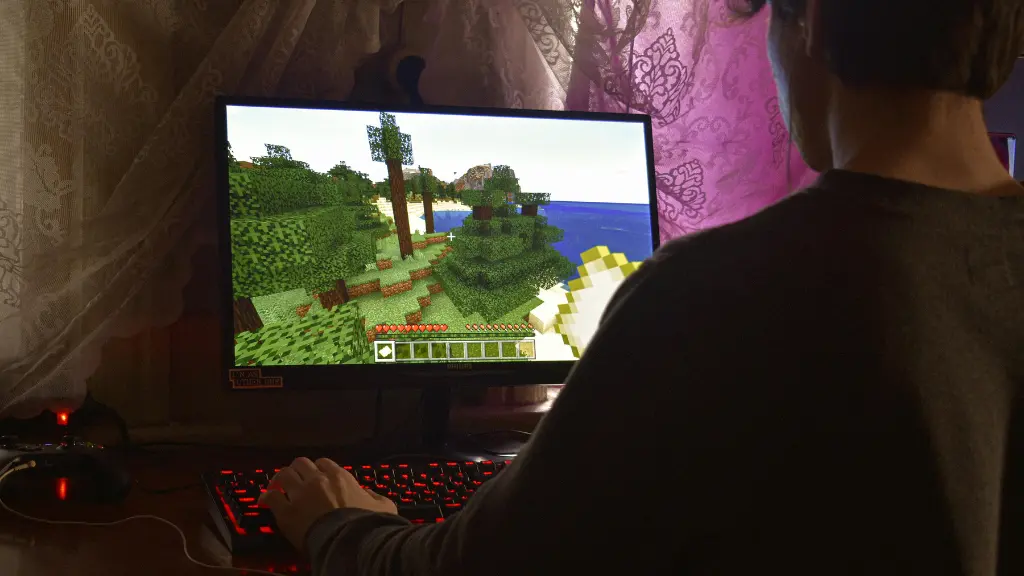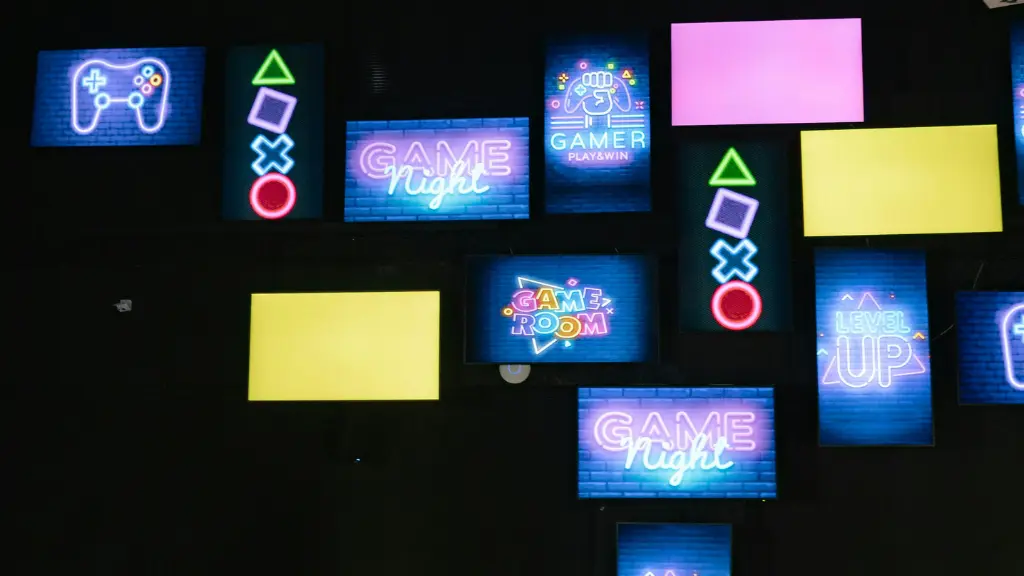
As a Unity developer, I have witnessed the growth and evolution of the Unity engine over the years. Unity has become one of the most popular game engines in the industry, with millions of developers using it to create games and other interactive experiences. Unity developers are an essential part of this process, as they have the knowledge and skills to create compelling games that engage players and keep them coming back for more.
Unity developers are skilled in using the Unity engine to create games and other interactive experiences. They have a deep understanding of the engine’s capabilities and are able to use it to create complex games with stunning graphics and immersive gameplay. Unity developers are also experts in programming languages such as C# and JavaScript, which are essential for creating games in Unity.
Overall, Unity developers play a crucial role in the game development process. They are the ones who bring games to life, using their skills and expertise to create engaging and immersive experiences for players. As the gaming sector expands further, the need for Unity developers is poised to rise, presenting an engaging and fulfilling opportunity within this dynamic field.
Getting Started with Unity
Unity Fundamentals

As a unity developers, it is important to understand the fundamentals of the Unity engine. Unity serves as a versatile game engine across multiple platforms, enabling developers to craft a variety of interactive experiences, including 2D and 3D games, simulations, and diverse interactive content. It provides a wide range of tools and features to help developers create high-quality games with ease.
One of the key features of unity developers is its component-based architecture. This allows developers to create complex game objects by combining simple components. Unity also provides a wide range of physics tools, audio tools, and scripting tools to help developers create immersive games.
Choosing the Right Unity Version
Before starting with unity developers, it is important to choose the right version of Unity. Unity provides different versions for different needs, such as personal, professional, and enterprise. Each iteration possesses a distinct array of functionalities and constraints.
To get started with unity developers, I recommend downloading the latest version of Unity from the official Unity website. This ensures that you have access to the latest features and updates.
Installation and Setup
Once you have downloaded the appropriate version of unity developers, you can install it on your computer. Unity provides detailed installation instructions for each platform on its website.
After installing Unity, you can start exploring the Unity Editor. The Unity Editor is a powerful tool that allows developers to create, edit, and test their games. Unity provides a range of tutorials and resources to help developers get started with the Unity Editor.
To learn more about unity developers and its features, I recommend visiting the official Unity website and checking out the Unity Learning resources. These resources provide a range of tutorials, courses, and documentation to help developers learn Unity and improve their skills.
Unity Licensing Options

As a unity developers, it’s important to understand the different licensing options available. The three main options are Unity Personal, Unity Plus, and Unity Pro. Each option offers different features and benefits, so it’s important to choose the one that best fits your needs.
Unity Personal
Unity Personal is a free option that is great for beginners or those who are just starting out with unity developers. It includes all the basic features you need to create a game or application, including access to the Unity Asset Store and the ability to publish to multiple platforms.
One thing to note is that Unity Personal includes a splash screen that displays when your game or application starts up. This splash screen cannot be removed, and it must be displayed on all platforms.
Unity Plus
Unity Plus is a paid option that is geared towards indie developers and small studios. It includes all the features of unity developers Personal, as well as some additional features such as access to the Unity Learn Premium platform and the ability to use Unity Teams Advanced.
One of the biggest benefits of unity developers Plus is that it allows you to remove the Unity splash screen from your game or application. This can help give your game a more professional look and feel.
Unity Pro
Unity Pro is the most advanced licensing option and is geared towards larger studios and enterprise-level development. It includes all the features of Unity Plus, as well as some additional features such as access to Unity Analytics Pro and the ability to use Unity Cloud Build Pro.
One thing to note is that unity developers Pro comes with a higher price tag than the other options. However, if you need the advanced features and tools that it offers, it can be well worth the investment.
In summary, Unity offers three main licensing options: Unity Personal, Unity Plus, and Unity Pro. Each option offers different features and benefits, so it’s important to choose the one that best fits your needs and budget.
Developing with Unity

As a Unity developer, I have found that developing with unity developers is a rewarding experience. The platform offers a wide range of tools and features that allow me to create engaging and interactive experiences for users.
Scripting in Unity
One of the key features of Unity is its scripting capabilities. Unity developers uses C# as its primary scripting language, which is a powerful and flexible language that allows me to create complex gameplay mechanics and interactions.
I have found that the scripting interface in unity developers is intuitive and easy to use, making it easy to create and modify scripts. Additionally, Unity provides a range of built-in functions and classes that make it easy to create common gameplay mechanics, such as movement and collision detection.
Unity’s Asset Store
Another notable aspect of unity developers is its Asset Store. The Asset Store is a marketplace where developers can purchase and download assets, such as 3D models, textures, and audio files, to use in their projects.
I have found that the Asset Store is a great resource for finding high-quality assets that can save me time and effort in the development process. Additionally, the Asset Store allows me to easily share my own assets with other developers, which can be a great way to build a community around my projects.
Optimizing Unity Projects
Optimizing Unity projects is an important part of the development process. Unity provides a range of tools and features that can help me optimize my projects, such as the Profiler, which allows me to identify performance bottlenecks in my code.
I have found that optimizing my projects can greatly improve the user experience, and can help me create more engaging and immersive experiences. By carefully managing my assets and optimizing my code, I can create projects that run smoothly on a wide range of devices.
Overall, I have found that developing with Unity is a great experience. The platform offers a range of tools and features that allow me to create engaging and interactive experiences for users, and the community around Unity is supportive and helpful.
Unity for Mobile Development

As a Unity developer, I have found that unity developers is a powerful tool for developing mobile applications. Unity offers a number of benefits for mobile development, including cross-platform compatibility, excellent graphics capabilities, and a wide range of tools and resources.
Android Development with Unity
When it comes to Android development with unity developers, there are a number of things to keep in mind. One of the key benefits of using Unity for Android development is that it allows you to create high-quality, visually stunning applications that can run on a wide range of devices.
Unity also offers a number of tools and resources that can help you optimize your Android applications for performance and efficiency. For example, Unity’s Profiler tool can be used to identify and fix performance bottlenecks in your application, while its Asset Store offers a wide range of plugins and assets which aids in integrating additional features and enhancing the functionality of your application.
iOS Development with Unity
Unity developers is also an excellent tool for iOS development. Like Android, iOS offers a wide range of devices with different screen sizes and resolutions, and Unity can help you create applications that look great on all of them.
One of the key benefits of using Unity for iOS development is that it allows you to take advantage of Apple’s powerful hardware and software capabilities. For example, Unity supports Metal, Apple’s low-level graphics API, which can help you create high-quality, visually stunning applications that take full advantage of the latest iOS devices.
Overall, unity developers is an excellent choice for mobile development, whether you are targeting Android, iOS, or both. With its wide range of tools and resources, cross-platform compatibility, and excellent graphics capabilities, Unity can help you create high-quality, visually stunning applications that run smoothly on a wide range of devices.
Unity Web Deployment

As a Unity developer, I have found that web deployment is a crucial aspect of game development. Unity offers two main options for web deployment: WebGL and Unity Web Player.
WebGL with Unity
WebGL is a powerful tool that allows developers to create high-quality 3D graphics for web browsers. Unity’s WebGL support is robust and easy to use, making it an excellent choice for developers who want to create browser-based games.
One of the benefits of using WebGL with Unity is that it allows developers to create games that can be played on a wide range of devices, including desktops, laptops, and mobile devices. Additionally, WebGL games can be easily shared and played on social media platforms, making them an excellent choice for developers who want to reach a large audience.
Unity Web Player
Unity Web Player is another option for web deployment with Unity. While it is not as widely used as WebGL, it still has some benefits for developers. One of the main advantages of Unity Web Player is that it allows for faster load times and smoother gameplay than WebGL.
However, Unity Web Player is not as widely supported as WebGL, which means that some users may have difficulty playing games created with it. Additionally, Unity Web Player is not compatible with some web browsers, which can limit its usefulness for developers.
Overall, both WebGL and Unity Web Player are viable options for web deployment with Unity. Developers should consider their specific needs and the needs of their audience when choosing which option to use for their game.
Unity and Unreal Comparison
Unity vs. Unreal for Beginners

Both Unity and unreal unity are popular game engines that offer a range of features for game development. However, Unity is generally considered to be more beginner-friendly than Unreal. Unity has a simpler interface and a more intuitive workflow, making it easier for beginners to get started with game development. On the other hand, unity unreal has a steeper learning curve, but it offers more advanced features and customization options.
Performance and Graphics
When it comes to performance and graphics, both Unity and Unreal are powerful game engines. However, Unreal is known for its advanced graphics capabilities and is often used in AAA game development. Unreal’s advanced lighting system and particle effects allow for stunning visual effects, while Unity’s graphics capabilities are more suited for mobile and indie games.
In terms of performance, both engines are capable of producing high-quality games. However, Unreal’s C++ programming language allows for more fine-tuned optimization, making it more suitable for high-end games with demanding performance requirements.
Community and Support
Both Unity and Unreal have active communities and offer a range of support options. Unity has a larger user base and a more active community, which means that there are more resources available for beginners. Unity also offers a range of tutorials and documentation to help developers get started.
Unreal, on the other hand, has a smaller but dedicated community. Unreal offers extensive documentation and support options, including forums, documentation, and video tutorials. Additionally, Unreal’s community is known for its helpfulness and willingness to assist new developers.
In conclusion, both Unity and Unreal are powerful game engines that offer a range of features for game development. While Unity is more beginner-friendly and suited for mobile and indie games, Unreal is more advanced and suitable for AAA game development. Ultimately, the choice between Unity and Unreal depends on the needs of the developer and the requirements of the game being developed.
Advanced Unity Techniques
Virtual Reality in Unity

As a Unity developer, I have found that virtual reality (VR) is a rapidly growing area in the gaming industry. With Unity, developers can create immersive VR experiences that allow players to interact with the game world in ways that were previously impossible.
One of the most important things to consider when developing a VR game in Unity is performance. VR requires a high frame rate to avoid motion sickness, so it is essential to optimize the game for performance. This can be achieved by reducing the number of draw calls and using efficient shaders.
Another important aspect to consider is player movement. In VR, players can become disoriented if the movement is not smooth and natural. To address this, Unity provides a range of locomotion techniques, such as teleportation and smooth movement, that can be used to create a seamless VR experience.
Augmented Reality with Unity
Augmented reality (AR) is another area where Unity developers can create exciting and innovative experiences. AR allows developers to overlay digital content on top of the real world, creating a unique and interactive experience.
One of the key challenges when developing AR applications in Unity is tracking. Accurate tracking is essential for creating a seamless AR experience, and Unity provides a range of tools to help with this, such as the AR Foundation package.
Another important consideration is user interaction. In AR, users interact with the digital content in the real world, so it is essential to design intuitive and natural interactions.
Conclusion
In conclusion, Unity provides a powerful platform for developing advanced VR and AR experiences. With careful optimization and thoughtful design, Unity developers can create immersive and engaging experiences that push the boundaries of what is possible in gaming.

This can be achieved by using familiar gestures, such as tapping and swiping, and by providing clear visual feedback. Also read about the: Ezoic Access Now: How to Get Started with Ezoic and Boost Your Website Revenue.
Pingback: Fibonacci Numbers Stocks: Understanding the Relationship - Source1 Finance